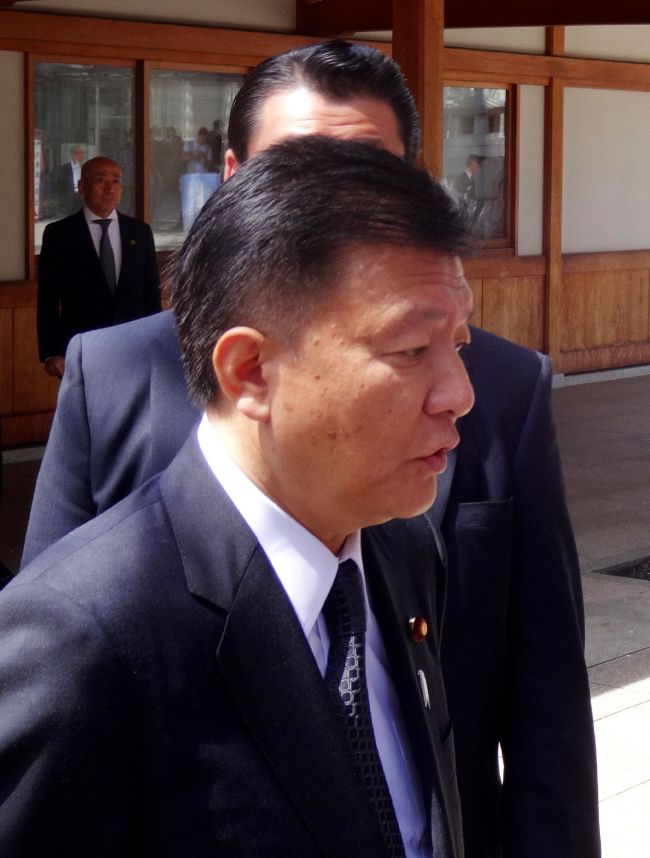Seoul criticizes Japanese minister‘s visit to Yasukuni shrine
By Korea HeraldPublished : April 13, 2014 - 09:23

South Korea criticized Japan’s internal affairs minister Saturday for visiting a controversial war shrine in Tokyo, calling it a “retrograde” action.
Japan‘s minister for internal affairs, Yoshitaka Shindo, paid his respect at the Yasukuni Shrine in Tokyo during a local memorial ceremony there earlier in the day.
Hours later, the South Korean foreign ministry issued a statement denouncing the visit.
“The international community is jointly voicing criticism and worries about Japanese politicians’ retrograde remarks and actions,” the ministry said. “The Japanese cabinet member‘s visit to the Yasukuni Shrine that glorifies (Japan’s) past aggressions, made again in defiance of the international worries, constitutes a head-on challenge to the neighboring countries that suffered from Japan‘s past imperialism as well as to the international community.”
Japanese politicians should make efforts to mend South Korea-Japan ties through “humble retrospection on their history”, the ministry said in the statement.
Japan’s Asian neighbors, especially South Korea and China, view the Yasukuni shrine as a symbol of Japan‘s past imperialism. The shrine honors millions of Japan’s war dead, including 14 convicted World War II criminals.
Shindo‘s action came amid months of icy relations between the countries.
Under the nationalist Prime Minister Shinzo Abe, Japan has taken a series of nationalistic steps in efforts to whitewash and glorify its wrongdoings during World War II, including Japan’s colonial rule of the Korean Peninsula from 2010-45.
Marking the first anniversary in office, Abe visited the Shinto shrine in late 2013, sparking a strong backlash from Seoul as well as Beijing. (Yonhap)
-
Articles by Korea Herald




![[Herald Interview] 'Amid aging population, Korea to invite more young professionals from overseas'](http://res.heraldm.com/phpwas/restmb_idxmake.php?idx=644&simg=/content/image/2024/04/24/20240424050844_0.jpg&u=20240424200058)












![[KH Explains] Korean shipbuilding stocks rally: Real growth or bubble?](http://res.heraldm.com/phpwas/restmb_idxmake.php?idx=652&simg=/content/image/2024/04/25/20240425050656_0.jpg&u=)

